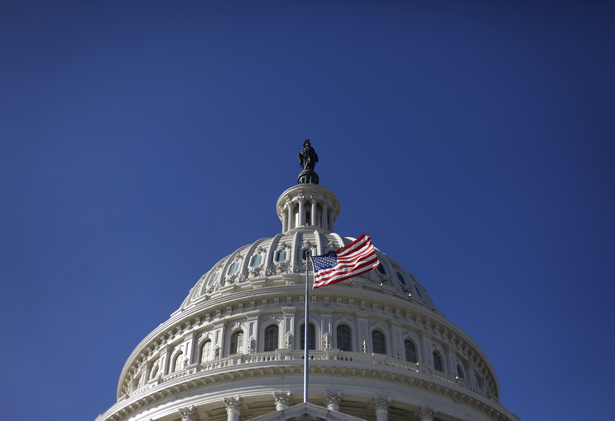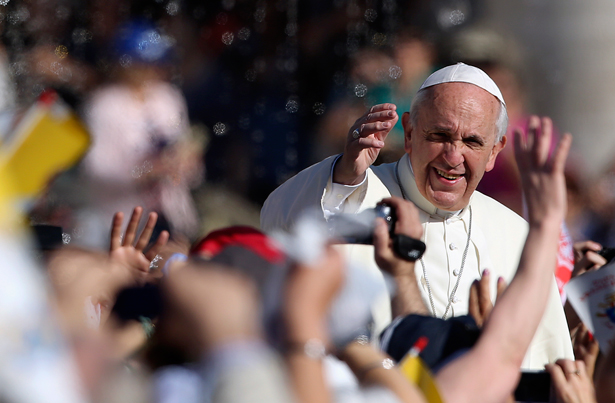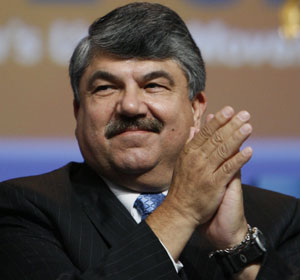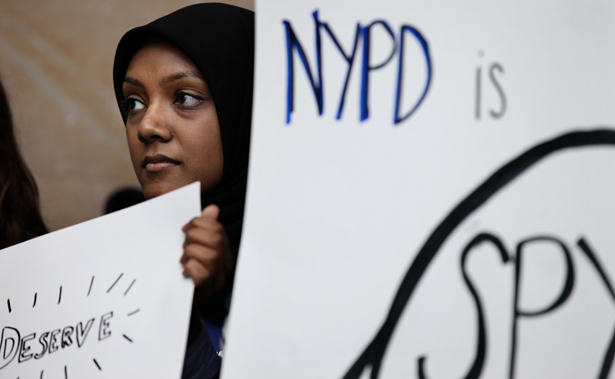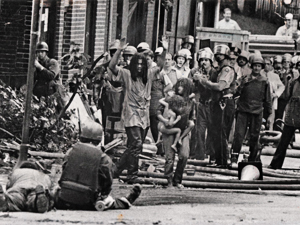Washington, D.C.
In early 1943, at the height of the Holocaust, a prominent journalist denounced President Franklin Roosevelt’s response to the Nazi genocide in harsh terms: “You and I and the President and the Congress and the State Department are accessories to the crime and share Hitler’s guilt,” she wrote. “If we had behaved like humane and generous people instead of complacent, cowardly ones, the two million Jews lying today in the earth of Poland and Hitler’s other crowded graveyards would be alive and safe…. We had it in our power to rescue this doomed people and we did not lift a hand to do it—or perhaps it would be fairer to say that we lifted just one cautious hand, encased in a tight-fitting glove of quotas and visas and affidavits, and a thick layer of prejudice.”
This stunning critique of FDR’s Jewish refugee policy was written by none other than Freda Kirchwey, staunch New Dealer, Roosevelt supporter and editor in chief of The Nation. Evidently journalist Laurence Zuckerman was not aware of the Holocaust record of the magazine for which he was writing when he wrote “FDR’s Jewish Problem” [Aug. 5/12]. It completely refutes Zuckerman’s thesis that criticism of FDR’s Holocaust record is all the handiwork of conservatives and right-wing Zionists to drum up support for Israel.
The Nation spoke out early and vociferously for US action to rescue Europe’s Jews. After the 1938 Kristallnacht pogrom, it called for admission to the United States of at least 15,000 German Jewish refugee children. (The administration declined to endorse the proposal.) The Roosevelt administration’s refugee policy “is one which must sicken any person of ordinarily humane instinct,” Kirchwey wrote in 1940. “It is as if we were to examine laboriously the curriculum vitae of flood victims clinging to a piece of floating wreckage and finally to decide that no matter what their virtues, all but a few had better be allowed to drown.”
In 1941, FDR’s administration devised a harsh new immigration regulation that barred admission to anyone with close relatives in Europe, on the grounds that the Nazis might compel them to spy for Hitler by threatening their relatives. The Nation denounced that as “reckless and ridiculous.”
Numerous prominent progressives have followed in The Nation’s and Kirchwey’s footsteps by frankly acknowledging FDR’s failings in this regard. Walter Mondale called President Roosevelt’s 1938 refugee conference in Evian, France, a “legacy of shame” and said the participants “failed the test of civilization.” At the opening of the US Holocaust Museum in 1993, President Clinton pointed out that under the Roosevelt administration, “doors to liberty were shut and…rail lines to the camps within miles of militarily significant targets were left undisturbed.”
Nancy Pelosi, in her autobiography, recalled with pride how her father, Congressman Thomas D’Alesandro, broke with FDR over the Holocaust and supported the Bergson Group, which challenged FDR’s refugee policy. George McGovern, in a 2004 interview about the missions he flew near Auschwitz as a young bomber pilot, said: “Franklin Roosevelt was a great man and he was my political hero. But I think he made two great mistakes”: the internment of Japanese-Americans, and the decision “not to go after Auschwitz…. God forgive us…. There was a pretty good chance we could have blasted those rail lines off the face of the earth [and] interrupted the flow of people to those death chambers, and we had a pretty good chance of knocking out those gas ovens.”
Progressives have a long and admirable record of honestly acknowledging FDR’s failings alongside his achievements. Roosevelt’s response to the Holocaust is no more defensible than his internment of Japanese-Americans or his troubling record on the rights of African-Americans. Recognizing that fact does not endanger the legacy of the New Deal or diminish FDR’s accomplishments in bringing America out of the Depression or his leadership in World War II. It merely acknowledges his flaws as well.
RAFAEL MEDOFF, founding director,
The David S. Wyman Institute for Holocaust Studies
Northampton, Mass.
Laurence Zuckerman suggests that Roosevelt’s critics are judging him harshly with the advantage of hindsight. He writes that “when he did learn about the murder of millions of Jews, he had no understanding of ‘the Holocaust,’ which came later and is now so embedded in our consciousness that it is hard to imagine what it was like to live without such knowledge.”
But this does not accurately reflect public awareness at the time. One needs only to read Freda Kirchwey: “Jews in Europe are being killed because they are Jews. Hitler has promised their total liquidation. The ways…these slaughters are conducted have been reported. The numbers have been verified…. You and I and the President and the Congress and the State Department are accessories to the crime and share Hitler’s guilt.”
Zuckerman also belittles the contributions of the Bergson Group in the formation of the War Refugee Board, saying that the group’s “biggest feat is something that Roosevelt created.” The Bergson Group sponsored legislation in Congress to establish a rescue agency. It is probable that at hearings on the bill, the State Department’s obstruction of efforts by US Jewish groups to rescue their European brethren would become public. Faced with a scandal, Roosevelt got ahead of the situation by creating the WRB—this was not a moral awakening but a political calculation.
Regarding the bombing of Auschwitz: the WRB investigated bombing the rail lines, gas chambers and crematoriums, but officials claimed that bombing Auschwitz would use air power needed elsewhere. However, US planes were bombing the I.G. Farben complex at nearby Monowitz. Between July and November 1944, more than 2,800 US planes bombed the oil factories, sometimes flying right over the Birkenau death camp.
Military experts and historians continue to debate the issue. Could precision bombing have been done without loss of prisoners’ lives? And would bombing the gas chambers actually have impeded the extermination? Historian Richard Breitman points out: “the historians’ debate…misses the main problem…: [the War Department] was opposed to the whole idea of a military mission for humanitarian purposes…and stopped the [WRB] from pursuing it.” Of course, one cannot ever know if bombing Auschwitz would have had the desired results. But as Breitman concludes: “bombing the gas chambers would have been a potent symbol of American concern for European Jews.”
MARK GERSTEIN, former instructor in Holocaust Studies, University of Massachusetts
Washington, D.C.
In response to Laurence Zuckerman’s fine article, we might explain the thinking behind our book FDR and the Jews. We wrote the book because, first, scholarship is typically polarized between lauding FDR as the savior of the Jews and condemning him as a bystander or worse to the Holocaust. Second, we sought to analyze FDR’s approach to Jewish issues from the perspective of his entire life and career. Third, we tried to avoid writing history backward and making unverifiable counterfactual assumptions.
The real story of FDR and the Jews is how a humane but pragmatic president navigated competing priorities during the Great Depression, foreign policy crises and World War II. We do not whitewash FDR. “For most of his presidency Roosevelt did little to aid the imperiled Jews of Germany and Europe,” we wrote. Still, FDR was not monolithic in his policies and “at times acted decisively to rescue Jews, often withstanding contrary pressures from the American public, Congress, and his own State Department.” Overall, FDR was far better for the Jews than his political opposition at home or any other world leader of his time. Our loudest critic has been Rafael Medoff, a longstanding FDR critic who assails all those who do not follow his party line.
Political decisions during the Holocaust had a moral dimension that still elicits an emotional response. But some judgments—that FDR blithely sent passengers on the St. Louis to their death in the gas chambers, or that he refused to order the bombing of Auschwitz out of indifference or anti-Semitism—are historical distortions. We hope our readers will be able to judge with more and better information than they had.
RICHARD BREITMAN, ALLAN J. LICHTMAN, Distinguished Professors, American University
Zuckerman Replies
New York City
I am familiar with Freda Kirchwey and the articles from which Rafael Medoff quotes. But is he aware of this quote: “President Roosevelt has been a man whose greatness shines brightly in times of crisis. He is the only possible leader for the next four years.” It is from Kirchwey’s endorsement of Roosevelt’s historic bid for a fourth term, in The Nation of July 22, 1944, long after the condemnations of FDR’s refugee policies that Medoff cites—showing that the picture of FDR is more complex than Medoff would have us believe. It is disturbing that in his latest book, FDR and the Holocaust: A Breach of Faith, Medoff quotes Kirchwey’s criticisms of FDR at length while failing to mention that she still supported him. Emphasizing the former while ignoring the latter illustrates his flawed approach to writing history.
Neither my article nor the book FDR and the Jews, as its authors Richard Breitman and Allan Lichtman point out, portrayed FDR as beyond criticism for his handling of the Holocaust. But neither was he a total villain. Medoff’s articles and latest book contain a litany of criticisms of Roosevelt but virtually nothing about his achievements. One can read Medoff and forget that during FDR’s presidency the country was suffering through the worst economic catastrophe in its history, that the fates of Great Britain and the Soviet Union were hanging by a thread, and that America had suffered a humiliating defeat at the hands of the Japanese in Asia. In his letter, Medoff writes approvingly that “progressives have a long and admirable record of honestly acknowledging FDR’s failings alongside his achievements.” If only Medoff were equally fair-minded. As I wrote in my article, over the last thirty years a group of ideologically driven activists, of whom Medoff is the most energetic, have made it their business to cast Roosevelt’s handling of the Holocaust in the harshest possible light. These activists have largely had the field to themselves, and so a distorted image of FDR has become widely accepted. It is easy for politicians of all stripes to go along. Their homilies curry favor with Jewish supporters at little or no political cost.
One of my goals for the article was to re-balance the scales and expose the agenda of FDR’s most vociferous critics. Medoff does not address the central question of my piece: What contemporary purpose does it serve to portray Roosevelt as complicit in the Holocaust? Why do so many of Medoff’s articles link Roosevelt to current events in Israel, a country that didn’t exist during FDR’s lifetime? At a time when our country’s leaders and many of its citizens are agonizing over how to respond to the use of chemical weapons in Syria, we might all agree that figuring out the best way to stop mass murder overseas has never been an easy task.
LAURENCE ZUCKERMAN Read More
Our Readers and Laurence Zuckerman

